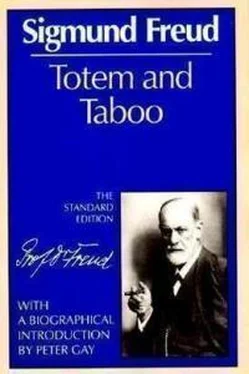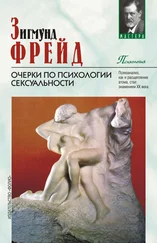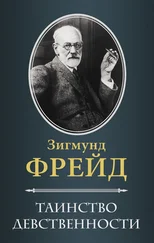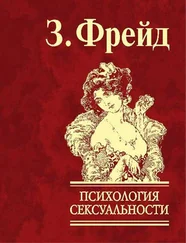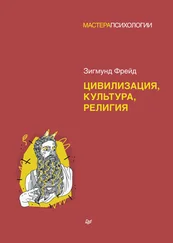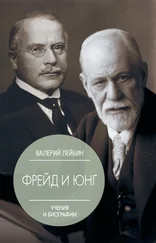Зигмунд Фрейд - Totem and Taboo
Здесь есть возможность читать онлайн «Зигмунд Фрейд - Totem and Taboo» весь текст электронной книги совершенно бесплатно (целиком полную версию без сокращений). В некоторых случаях можно слушать аудио, скачать через торрент в формате fb2 и присутствует краткое содержание. Год выпуска: 2014, Издательство: epubBooks Classics, Жанр: Психология, на английском языке. Описание произведения, (предисловие) а так же отзывы посетителей доступны на портале библиотеки ЛибКат.
- Название:Totem and Taboo
- Автор:
- Издательство:epubBooks Classics
- Жанр:
- Год:2014
- ISBN:нет данных
- Рейтинг книги:3 / 5. Голосов: 1
-
Избранное:Добавить в избранное
- Отзывы:
-
Ваша оценка:
- 60
- 1
- 2
- 3
- 4
- 5
Totem and Taboo: краткое содержание, описание и аннотация
Предлагаем к чтению аннотацию, описание, краткое содержание или предисловие (зависит от того, что написал сам автор книги «Totem and Taboo»). Если вы не нашли необходимую информацию о книге — напишите в комментариях, мы постараемся отыскать её.
Totem and Taboo — читать онлайн бесплатно полную книгу (весь текст) целиком
Ниже представлен текст книги, разбитый по страницам. Система сохранения места последней прочитанной страницы, позволяет с удобством читать онлайн бесплатно книгу «Totem and Taboo», без необходимости каждый раз заново искать на чём Вы остановились. Поставьте закладку, и сможете в любой момент перейти на страницу, на которой закончили чтение.
Интервал:
Закладка:
The current explanation of all these rules of reconciliation, restriction, expiation and purification, combines two principles, namely, the extension of the taboo of the dead to everything that has come into contact with him, and the fear of the spirit of the slain. In what combination these two elements are to explain the ceremonial, whether they are to be considered as of equal value or whether one of them is primary and the other secondary, and which one, is nowhere stated, nor would this be an easy matter to decide. In contradistinction to all this we emphasize the unity which our interpretation gains by deducing all these rules from the ambivalence of the emotion of savages towards their enemies.
( B ) THE TABOO OF RULERS
The behaviour of primitive races towards their chiefs, kings, and priests, is controlled by two principles which seem rather to supplement than to contradict each other. They must both be guarded and be guarded against [53] Frazer, Taboo , p. 132. “He must not only be guarded, he must also be guarded against.”
.
Both objects are accomplished through innumerable rules of taboo. Why one must guard against rulers is already known to us; because they are the bearers of that mysterious and dangerous magic power which communicates itself by contact, like an electric charge, bringing death and destruction to any one not protected by a similar charge. All direct or indirect contact with this dangerous sacredness is therefore avoided, and where it cannot be avoided a ceremonial has been found to ward off the dreaded consequences. The Nubas in East Africa, for instance, believe that they must die if they enter the house of their priest–king, but that they escape this danger if, on entering, they bare the left shoulder and induce the king to touch it with his hand. Thus we have the remarkable case of the king’s touch becoming the healing and protective measure against the very dangers that arise from contact with the king; but it is probably a question of the healing power of the intentional touching on the king’s part in contradistinction to the danger of touching him, in other words, of the opposition between passivity and activity towards the king.
Where the healing power of the royal touch is concerned we do not have to look for examples among savages. In comparatively recent times the kings of England exercised this power upon scrofula, whence it was called ‘The King’s Evil’. Neither Queen Elizabeth nor any of her successors renounced this part of the royal prerogative. Charles I is said to have healed a hundred sufferers at one time, in the year 1633. Under his dissolute son Charles II, after the great English revolution had passed, royal healings of scrofula attained their greatest vogue.
This king is said to have touched close to a hundred thousand victims of scrofula in the course of his reign. The crush of those seeking to be cured used to be so great that on one occasion six or seven patients suffered death by suffocation instead of being healed. The sceptical king of Orange, William III, who became king of England after the banishment of the Stuarts, refused to exercise the spell; on the one occasion when he consented to practise the touch, he did so with words: “May God give you better health and more sense” [54] Frazer, The Magic Art , I, p. 368.
.
The following account will bear witness to the terrible effect of touching by virtue of which a person, even though unintentionally, becomes active against his king or against what belongs to him. A chief of high rank and great holiness in New Zealand happened to leave the remains of his meal by the roadside. A young slave came along, a strong healthy fellow, who saw what was left over and started to eat it. Hardly had he finished when a horrified spectator informed him of his offence in eating the meal of the chief. The man had been a strong, brave warrior, but as soon as he heard this he collapsed and was afflicted by terrible convulsions, from which he died towards sunset of the following day [55] Old New Zealand , by a Pakeha Maori (London, 1884), see Frazer, Taboo , p. 135.
. A Maori woman ate a certain fruit and then learned that it came from a place on which there was a taboo. She cried out that the spirit of the chief whom she had thus offended would surely kill her. This incident occurred in the afternoon, and on the next day at twelve o’clock she was dead [56] W. Brown, New Zealand and Its Aborigines (London, 1845) Frazer, l.c.
. The tinder box of a Maori chief once cost several persons their lives. The chief had lost it, and those who found it used it to light their pipes. When they learned whose property the tinder box was they all died of fright [57] Frazer , l.c.
.
It is hardly astonishing that the need was felt to isolate dangerous persons like chiefs and priests, by building a wall around them which made them inaccessible to others. We surmise that this wall, which originally was constructed out of taboo rules, still exists to–day in the form of court ceremony.
But probably the greater part of this taboo of the rulers cannot be traced back to the need of guarding against them. The other point of view in the treatment of privileged persons, the need of guarding them from dangers with which they are threatened, has had a distinct share in the creation of taboo and therefore of the origin of court etiquette.
The necessity of guarding the king from every conceivable danger arises from his great importance for the weal and woe of his subjects. Strictly speaking, he is a person who regulates the course of the world; his people have to thank him not only for rain and sunshine, which allow the fruits of the earth to grow, but also for the wind which brings the ships to their shores and for the solid ground on which they set their feet [58] Frazer, Taboo . The Burden of Royalty , p. 7.
.
These savage kings are endowed with a wealth of power and an ability to bestow happiness which only gods possess; certainly in later stages of civilization none but the most servile courtiers would play the hypocrite to the extent of crediting their sovereigns with the possession of attributes similar to these.
It seems like an obvious contradiction that persons of such perfection of power should themselves require the greatest care to guard them against threatening dangers, but this is not the only contradiction revealed in the treatment of royal persons on the part of savages. These races consider it necessary to watch over their kings to see that they use their powers in the right way; they are by no means sure of their good intentions or of their conscientiousness. A strain of mistrust is mingled with the motivation of the taboo rules for the king. “The idea that early kingdoms are despotisms”, says Frazer [59] l.c. , p. 7.
, “in which the people exist only for the sovereign, is wholly inapplicable to the monarchies we are considering. On the contrary, the sovereign in them exists only for his subjects: his life is only valuable so long as he discharges the duties of his position by ordering the course of nature for his people’s benefit. So soon as he fails to do so, the care, the devotion, the religious homage which they had hitherto lavished on him cease and are changed into hatred and contempt; he is ignominiously dismissed and may be thankful if he escapes with his life. Worshipped as a god one day, he is killed as a criminal the next. But in this changed behaviour of the people there is nothing capricious or inconsistent. On the contrary, their conduct is quite consistent. If their king is their god he is or should be, also their preserver; and if he will not preserve them he must make room for another who will. So long, however, as he answers their expectations, there is no limit to the care which they take of him, and which they compel him to take of himself. A king of this sort lives hedged in by ceremonious etiquette, a network of prohibitions and observances, of which the intention is not to contribute to his dignity, much less to his comfort, but to restrain him from conduct which, by disturbing the harmony of nature, might involve himself, his people, and the universe in one common catastrophe. Far from adding to his comfort, these observances, by trammelling his every act, annihilate his freedom and often render the very life, which it is their object to preserve, a burden and sorrow to him.”
Интервал:
Закладка:
Похожие книги на «Totem and Taboo»
Представляем Вашему вниманию похожие книги на «Totem and Taboo» списком для выбора. Мы отобрали схожую по названию и смыслу литературу в надежде предоставить читателям больше вариантов отыскать новые, интересные, ещё непрочитанные произведения.
Обсуждение, отзывы о книге «Totem and Taboo» и просто собственные мнения читателей. Оставьте ваши комментарии, напишите, что Вы думаете о произведении, его смысле или главных героях. Укажите что конкретно понравилось, а что нет, и почему Вы так считаете.
